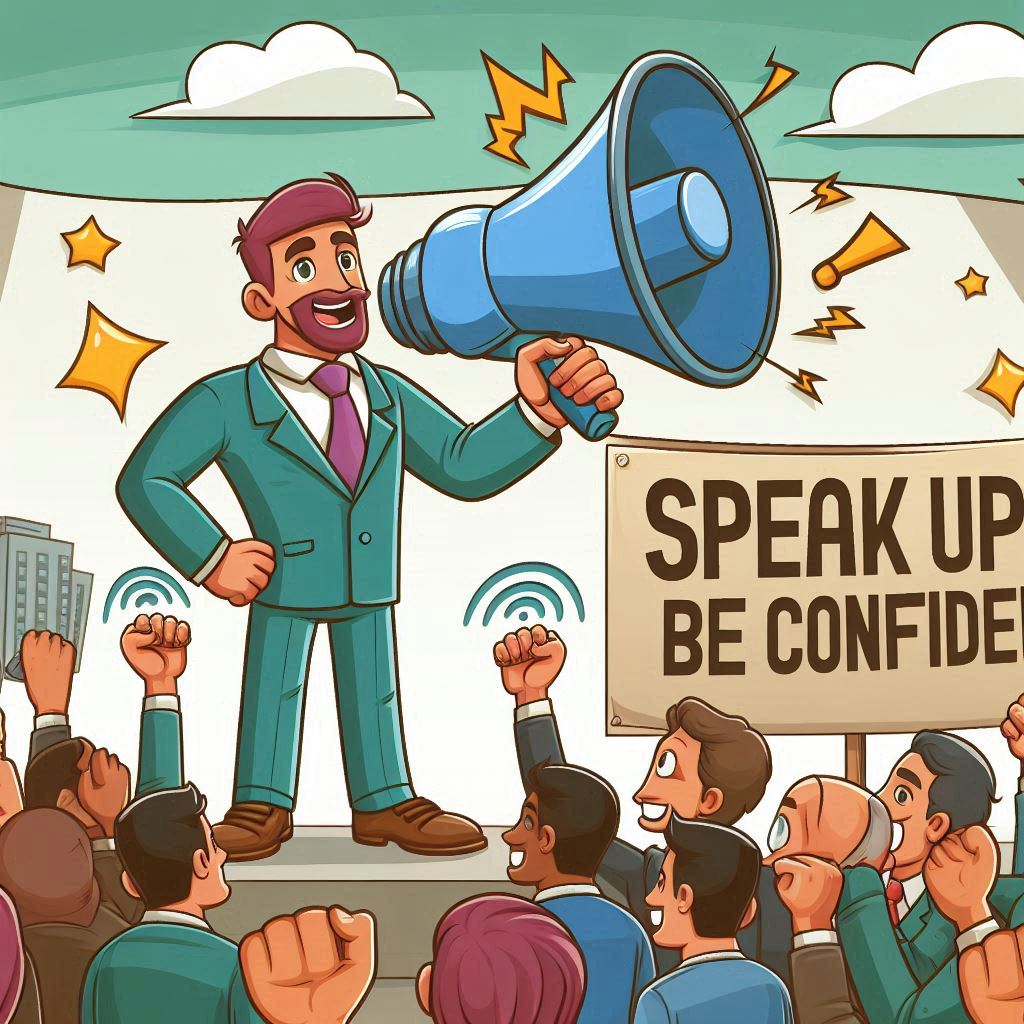Speak Up & Be Heard: Powerful Strategies to Boost Your Confidence
Have you ever found yourself in a situation where you had something important to say but held back due to a lack of confidence? Speaking up and being heard is a critical skill in both personal and professional settings. This article will guide you through powerful strategies to boost your confidence and enhance your communication skills.
Understanding Confidence
What is confidence?
Confidence is the belief in your abilities and judgment. It’s a state of mind that allows you to express yourself clearly and assertively without fear.
How confidence affects communication
When you’re confident, your communication is more effective. People are more likely to listen to you and take your ideas seriously. Confidence helps you convey your message with clarity and conviction.
The Psychology Behind Confidence
Self-esteem and self-worth
Your self-esteem and self-worth play a significant role in your confidence levels. High self-esteem leads to greater confidence, while low self-esteem can result in self-doubt and hesitation.
The role of mindset
Adopting a growth mindset, where you believe in your ability to develop skills through effort, can significantly boost your confidence. It encourages you to embrace challenges and learn from failures.

Common Barriers to Speaking Up
Fear of judgment
One of the most common barriers is the fear of being judged or criticized. This fear can be paralyzing and prevent you from expressing your thoughts.
Lack of preparation
Not being prepared can also undermine your confidence. When you haven’t practiced or thought through your points, it’s easy to feel uncertain and hesitant.
Negative self-talk
The way you talk to yourself matters. Negative self-talk can erode your confidence and make you doubt your abilities.
Strategies to Boost Confidence
Practice active listening
Active listening involves fully focusing on the speaker, understanding their message, and responding thoughtfully. This practice can help you feel more engaged and confident in conversations.
Prepare and practice
Preparation is key to confidence. Whether it’s a speech, presentation, or casual conversation, the more you practice, the more confident you’ll feel.
Positive affirmations
Using positive affirmations can help reframe your mindset and boost your self-esteem. Remind yourself of your strengths and past successes.
Building a Confident Mindset
Embracing failure
Failure is a natural part of learning. Instead of fearing it, embrace it as an opportunity to grow and improve.
Celebrating small wins
Acknowledge and celebrate your achievements, no matter how small. This helps build momentum and reinforces a positive mindset.
Setting realistic goals
Set achievable goals that challenge you but are within your reach. Accomplishing these goals can significantly boost your confidence.
Effective Communication Techniques
Body language
Your body language speaks volumes. Stand tall, make eye contact, and use open gestures to convey confidence.
Tone of voice
A confident tone is steady and clear. Avoid speaking too fast or too softly, as this can undermine your message.
Clarity and brevity
Be clear and concise in your communication. Avoid unnecessary jargon and get to the point to keep your audience engaged.

Practical Exercises for Confidence Building
Daily affirmations
Start your day with positive affirmations to set a confident tone. Repeat phrases like “I am capable” or “I am confident” to boost your self-esteem.
Public speaking clubs
Joining a public speaking club like Toastmasters can provide a supportive environment to practice and improve your speaking skills.
Role-playing scenarios
Practicing different scenarios through role-playing can help you prepare for real-life situations and build your confidence.
The Power of Nonverbal Communication
Importance of eye contact
Maintaining eye contact shows confidence and helps establish a connection with your audience.
Gestures and posture
Use purposeful gestures and maintain a confident posture to reinforce your message and keep your audience engaged.
Overcoming Social Anxiety
Breathing exercises
Deep breathing can help calm your nerves and reduce anxiety. Practice breathing exercises before speaking to center yourself.
Gradual exposure
Gradually expose yourself to social situations that make you anxious. Start small and work your way up to more challenging scenarios.
Seeking professional help
If social anxiety is significantly impacting your life, consider seeking help from a therapist or counselor.
Utilizing Feedback for Improvement
Constructive criticism
View constructive criticism as an opportunity to improve. Focus on the feedback and how you can apply it to enhance your skills.
Self-reflection
Take time to reflect on your performance. Identify areas for improvement and create a plan to address them.
Implementing changes
Actively implement the feedback and changes you’ve identified. Continuous improvement is key to building confidence.

Building Confidence in Professional Settings
Networking tips
Networking can be daunting, but it’s essential for career growth. Approach networking events with a positive mindset and be prepared to introduce yourself confidently.
Presentation skills
Develop strong presentation skills by practicing regularly. Focus on your delivery, body language, and the clarity of your message.
Handling difficult conversations
Difficult conversations are inevitable. Prepare for these by staying calm, being clear about your points, and actively listening to the other person.
Confidence in Personal Relationships
Assertiveness
Being assertive means expressing your thoughts and feelings openly and honestly while respecting others. It’s a crucial skill for maintaining healthy relationships.
Active listening in personal contexts
Show genuine interest in what others are saying. Active listening builds trust and strengthens your connections.
Conflict resolution
Handle conflicts with confidence by staying calm, listening to all sides, and seeking mutually beneficial solutions.
The Long-term Benefits of Confidence
Career advancement
Confidence can lead to greater career opportunities and advancement. It helps you take on new challenges and responsibilities.
Personal growth
Building confidence contributes to your overall personal growth. It allows you to pursue your goals and overcome obstacles.
Improved relationships
Confidence enhances your relationships by fostering better communication and understanding.

Conclusion
Boosting your confidence is a journey that requires effort and persistence. By understanding the psychology behind confidence, addressing common barriers, and practicing effective strategies, you can speak up and be heard in any situation. Remember, confidence is not about being perfect; it’s about believing in yourself and your abilities.

FAQs
What are the quickest ways to boost confidence?
Quick ways to boost confidence include practicing positive affirmations, preparing thoroughly for tasks, and engaging in activities that make you feel competent and successful.
How can I practice speaking up if I’m shy?
Start small by speaking up in low-pressure situations. Gradually increase the stakes as you become more comfortable. Joining a supportive group or club can also help.
What should I do if I face criticism?
View criticism as an opportunity to learn and improve. Separate your self-worth from the feedback and focus on actionable changes you can make.
Can confidence be learned or is it innate?
Confidence can definitely be learned. It’s a skill that develops through practice, experience, and positive reinforcement.
How do I maintain confidence in stressful situations?
Stay calm by practicing deep breathing and mindfulness techniques. Prepare as much as possible and focus on your strengths and past successes.






